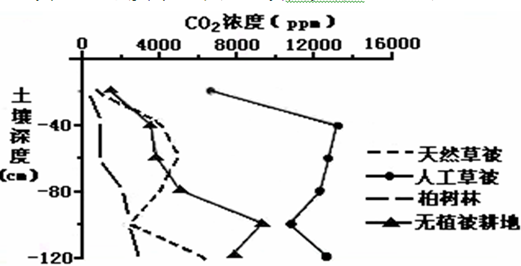问题
选择题
下图为“云南路南石林不同植被下土壤空气中CO2浓度示意图”,读图完成10~11题。

小题1:如果水分条件相同,那么图中哪种植被下的土壤、岩石最易被溶蚀: ( )
A.无植被耕地
B.人工草坡
C.柏树林
D.天然草坡小题2:如果当地植被破坏严重,最终产生的环境问题是: ( )
A.沙化
B.泥石流
C.石漠化
D.滑坡
答案
小题1:B
小题2:C
小题1:本题考查地理图表的判读能力。根据图示:图中人工草被土壤中的二氧化碳含量最高,如果水分条件相同,则二氧化碳浓度高,酸性强,岩石容易被溶蚀。所以本题选择B选项。
小题2:西南地区植被一旦被破坏,则水土流失严重,山体岩石裸露,形成石漠化。所以本题选择C选项。
